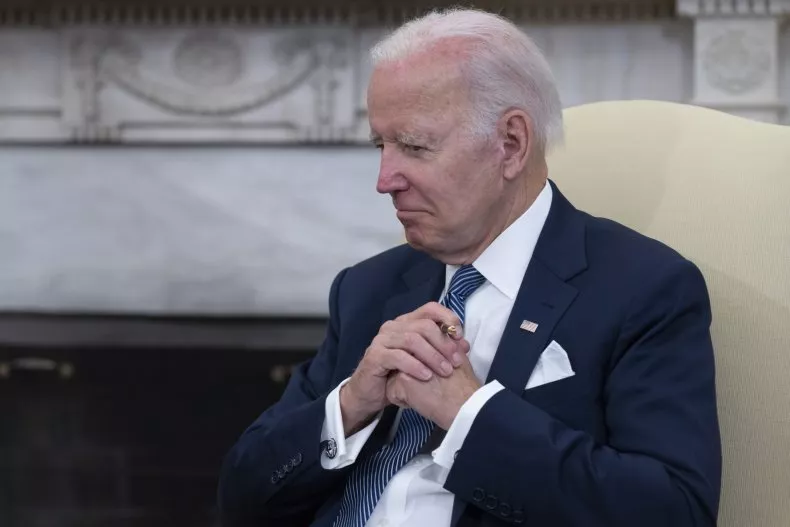The autopen may be mightier than the sword – or the law – but it’s not a shield. The latest revelations about the extent to which Joe Biden’s staff affixed his signature to pardons and commutations in his name, using a device to replicate his handwriting, is further damning evidence of who was really running his White House.
The joke is that the autopen was in charge. The sad reality is that Biden’s unelected staff and family were exercising the constitutional powers of the presidency without the obvious supervision of an elected leader.
Say what you will about the erratic nature of Donald Trump’s decisions and public statements; when the 79-year-old does or says something, there’s no mistaking his signature (although he has said he’s used the autopen for “very unimportant papers”).
Not so with Biden. A report in Sunday’s New York Times, including a brief telephone interview with the 82-year-old former president, discloses some new details about the scale of the auto-pardons, but it is full of cautions about how much the authors may not know. The Times piece is transparently an effort by Biden’s team to use a sympathetic outlet to get a favourable spin on the facts ahead of investigations by Congress and the Justice Department. Readers will notice how far into the article one must get before encountering the facts. But even the facts we know are hard to whitewash.

he scale of Biden’s pardons was unprecedented. Presidents have previously used blanket pardons in the military context to grant amnesty to Vietnam-era deserters and draft dodgers and Confederate soldiers. But nobody has come close to the more than 4,000 criminal-law pardons and commutations for individuals that were issued from the Biden White House between the election and Biden’s departure from office. Biden’s name was affixed to more pardons in 10 weeks than Franklin D Roosevelt issued in 12 years.
The most controversial of these are probably the ones that Biden actually thought through: scandalously broad pardons for Biden’s family members and for polarising political figures such as Dr Anthony Fauci, alongside an across-the-board decision to clear out death row by commuting all but three of the current federal death sentences. But there were thousands more beyond that.
Confirming that all of those pardons and commutations were justified in such a short time would be a Herculean labour. Biden and his team now say that he authorised the autopen to be used 25 times, some of them covering whole categories of hundreds of people based on general criteria. But who decided that each of these was a proper use of a power that the Constitution reserves personally to the president?
For example, Biden mass-commuted sentences of people given home confinement during the pandemic. Some of them committed notorious abuses of public trust that harmed large numbers of people. Did the president know he was doing that?
The “process” apparently involved oral “blurbs” from the often-incoherent elderly chief executive, which were then reported to the staff secretary controlling the autopen as authorisation for staff to give her lists of names purportedly meeting criteria signed off on by Biden. According to the New York Times, the lists sometimes changed slightly after the meetings without the president necessarily being aware.
Everyone involved is lawyering up. Even Biden’s doctor is pleading his Fifth Amendment right to remain silent to avoid self-incrimination. The entire spectacle is dramatic proof of how presidential power can be abused when the president’s mental faculties are fading to match his ethical standards and nobody in the room has to worry about facing the voters ever again.
Biden’s allies are now trying to shift the public’s focus to the narrow legal issue of whether the pardons and commutations are invalid. That’s a daunting standard for his critics to meet, one without precedent in American legal history. So long as there is some basis to argue that the president authorised a pardon, there’s nothing in the law that requires his personal signature. Trump’s Justice Department may well decide that it’s not worth the effort to fight the pardons in court.
But what the law allows to happen is far from the biggest issue: it’s that the pardon machine went into overdrive while the president was barely awake at the switch. The pardon power is the most absolute of all presidential powers, one modelled more closely on the power of a king than anything else the president does. The major check on its abuse is surely supposed to be that the president himself signs off on every pardon as an act of personal clemency.
If even that power was falling into the hands of the staff, what does that tell us about the many other presidential powers that were wielded in Joe Biden’s name while he was napping?
• Dan McLaughlin is a senior writer at National Review